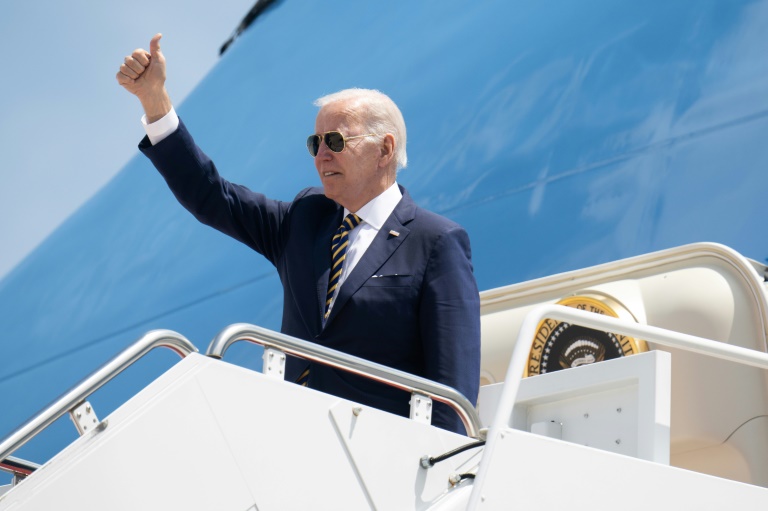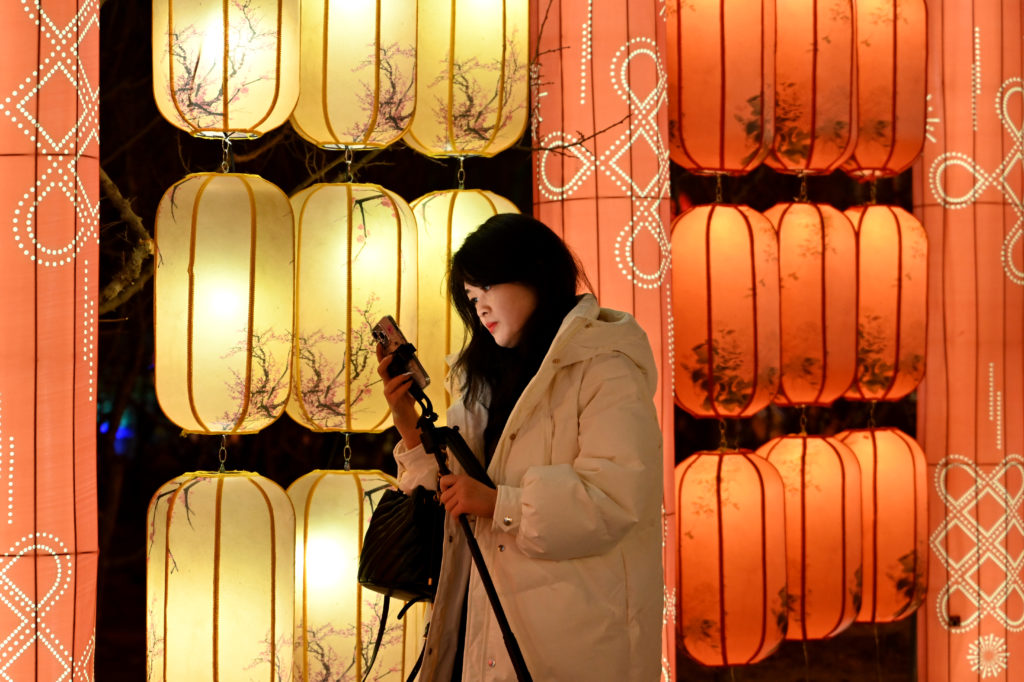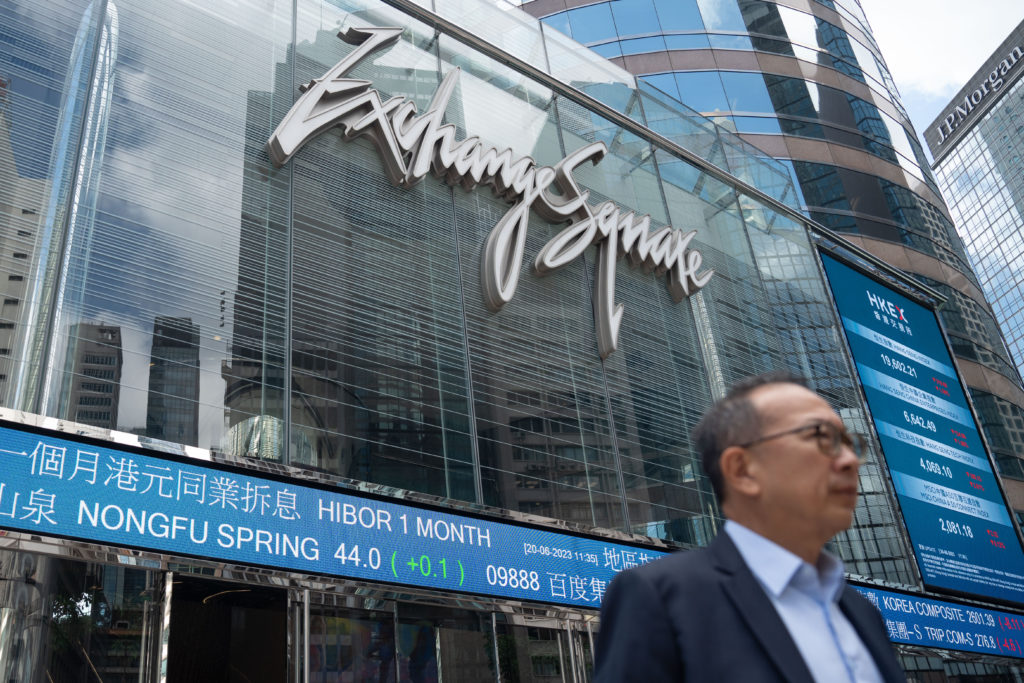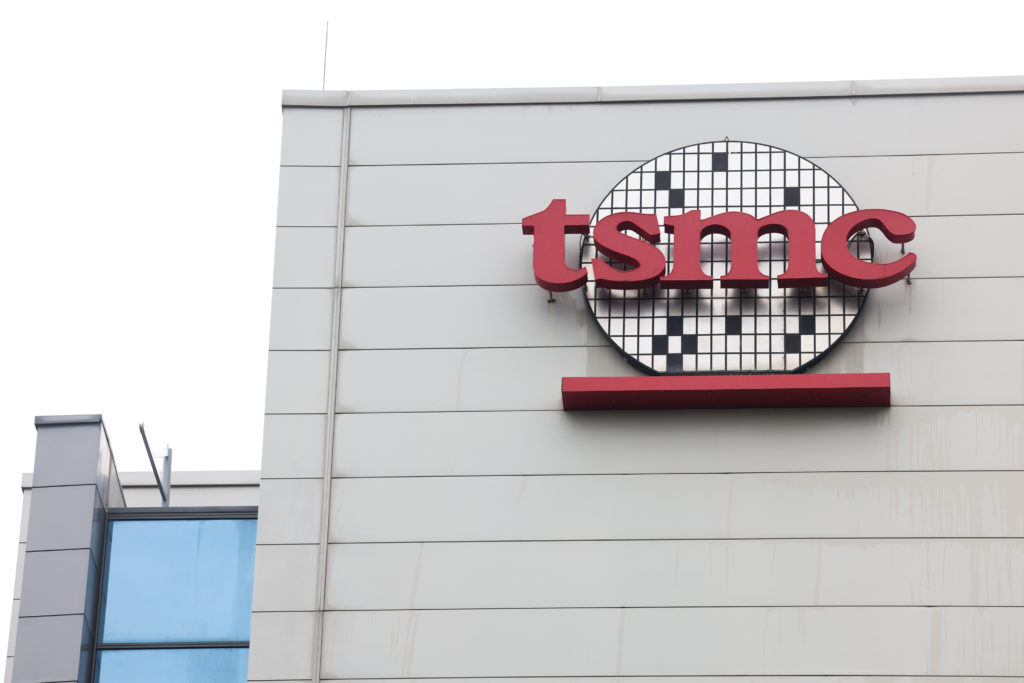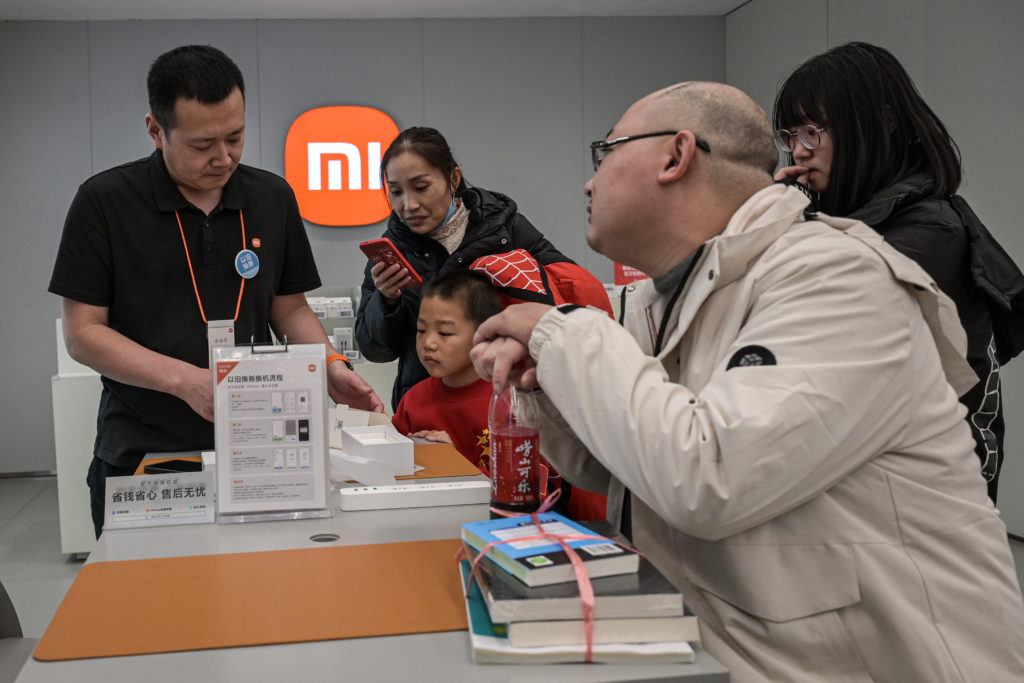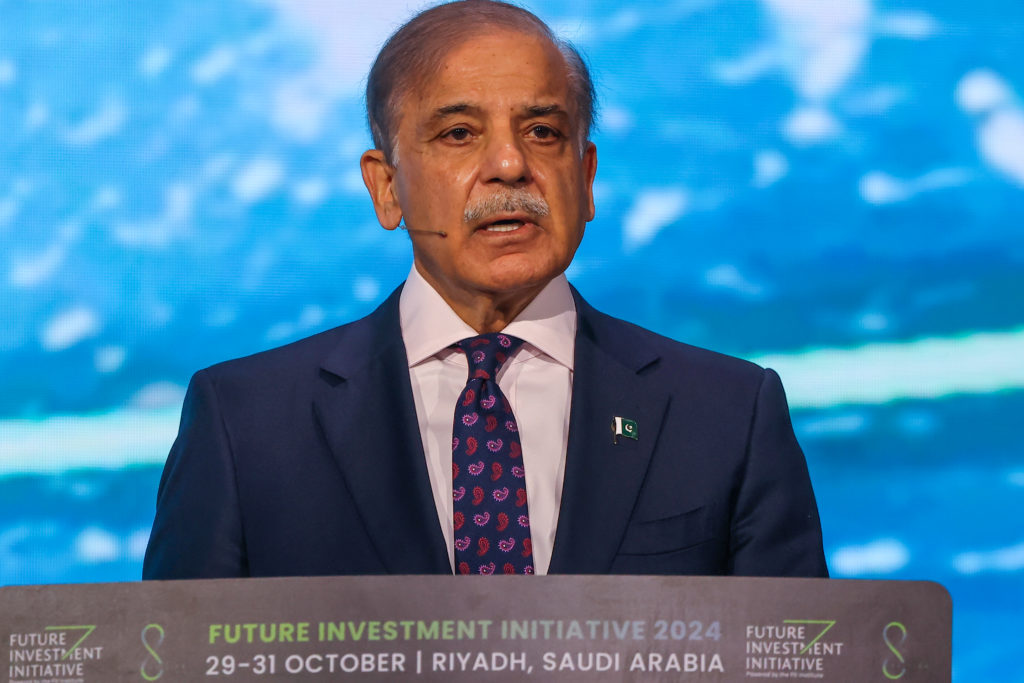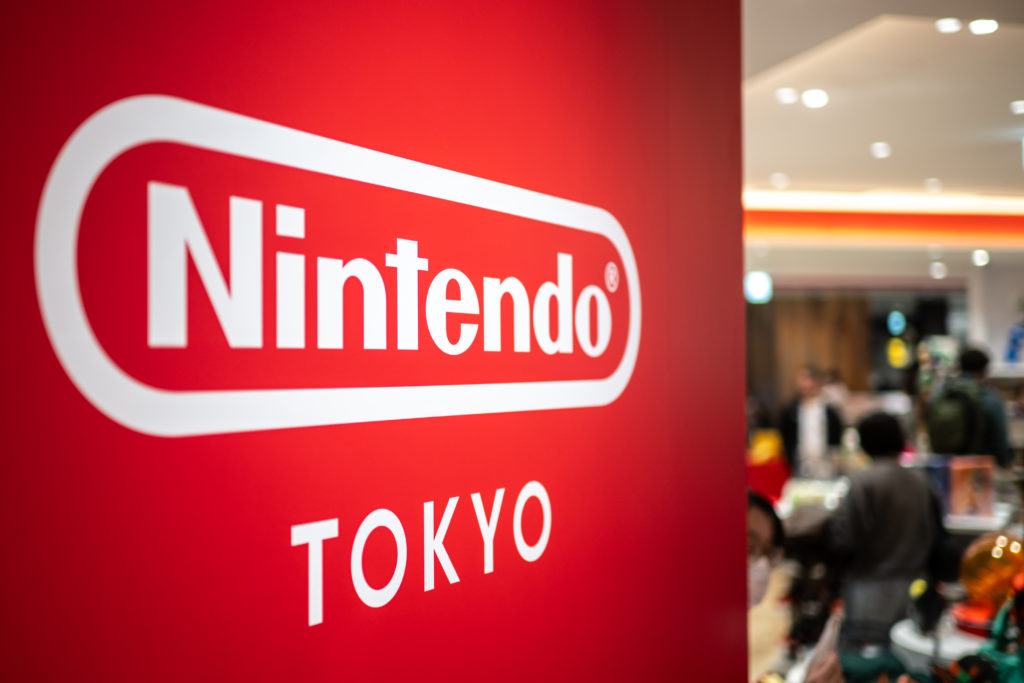President Joe Biden left Thursday for South Korea and Japan to cement US leadership in Asia at a time when the White House’s attention has been pulled back to Russia and Europe — and amid fears of a North Korean nuclear test during his trip.
Biden wants the trip to build on recent moves accelerating a years-long US pivot to Asia, where rising Chinese commercial and military power is undercutting Washington’s dominance.
But highlighting competing demands from Europe, Biden met right before his departure with the leaders of Finland and Sweden to celebrate their applications for joining NATO — a seismic development sparked by Russia’s invasion of Ukraine.
In another sign of growing US involvement in the conflict, the White House said that while Biden was in Asia he would put his signature on a massive, $40 billion Ukraine weapons and aid package passed Thursday by Congress.
Signing the bill “expeditiously” will ensure no gap in the funding flow, National Security Advisor Jake Sullivan told reporters aboard Air Force One en route to Seoul.
A separate crisis awaits Biden on arrival, however — jitters that North Korea’s unpredictable leadership will choose his trip as the moment to test a nuclear capable missile or even conduct a test nuclear explosion.
Despite a spiraling Covid outbreak, Pyongyang’s “preparations for a nuclear test have been completed and they are only looking for the right time,” South Korean lawmaker Ha Tae-keung said after being briefed by Seoul’s spy agency.
Sullivan said there was “real risk of some kind of provocation while we’re in the region, whether in South Korea or Japan.”
“We know what we will do to respond to them. We have communicated with not just our allies, but also with China,” he said.
Biden heads to Japan from South Korea on Sunday. He will hold talks with the leaders of both countries, as well as joining a regional summit of the Quad — a grouping of Australia, India, Japan and the United States — while in Tokyo.
Hours ahead of Biden arriving, South Korea’s newly elected, strongly pro-US President Yoon Suk-yeol issued a warm welcome.
“I am confident the ROK-US alliance that seeks to uphold the values of democracy and human rights shall only elevate in the future,” he wrote on Twitter.
Yoon has pledged to give South Korea a more “robust” foreign policy, and has repeatedly called for stronger ties with the US, including ramping up joint military exercises.
Early Friday, he told reporters in Seoul that Biden’s trip was an opportunity for the US-South Korea relationship to become “stronger and more inclusive”.
– Taiwan lessons? –
Sullivan said ahead of the trip that Biden is bound for Asia with “the wind at our back” after successful US leadership in the Western response to President Vladimir Putin’s now almost three-month-long invasion of Ukraine.
The high military, diplomatic and economic cost imposed on Russia is seen in Washington as a cautionary tale for China, given Beijing’s stated ambitions to gain control over democratic-ruled Taiwan, even if that means going to war.
Earlier this month, CIA Director William Burns said Beijing is watching “carefully.”
“I think they’ve been struck by the way in which particularly the transatlantic alliance has come together to impose economic costs on Russia as a result of that aggression,” he said.
Sullivan said the administration wants not so much to confront China on the trip as to use Biden’s diplomacy to show that the West and its Asian partners will not be divided and weakened.
He pointed to cooperation from South Korea and Japan, among others, in the sanctions regime against Russia led by European powers and the United States. He also referred to Britain’s role in the recently created security partnership AUKUS.
This “powerful message” will be “heard in Beijing,” Sullivan said, “but it’s not a negative message and it’s not targeted at any one country.”
– North Korean wild card –
Sullivan said the United States is braced for North Korea to again defy UN sanctions by conducting a nuclear test.
The US response — which will be coordinated with South Korea and Japan — could include “adjustments to the way that our military is postured in the region,” Sullivan said.
The US has nearly 30,000 troops in South Korea — some of whom Biden will visit on the trip — and about 55,000 US military personnel in Japan.
Sullivan denied that a North Korean nuclear test would be seen as a setback for Biden’s diplomacy.
“It would underscore one of the main messages that we are sending on this trip, which is that the United States is here for our allies and partners.”

